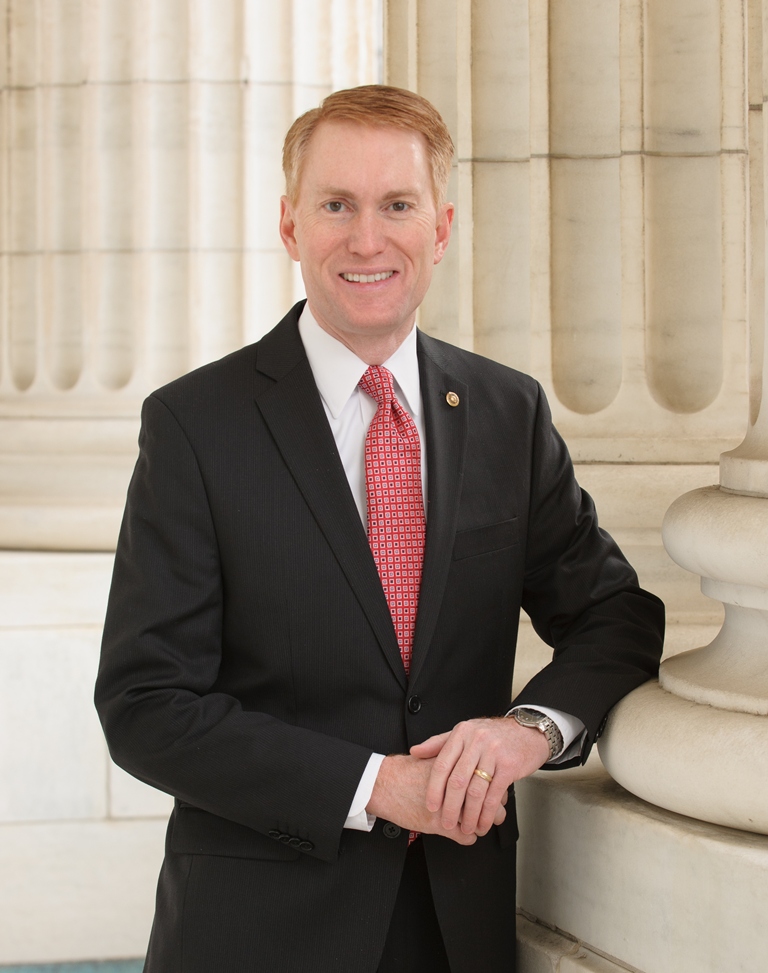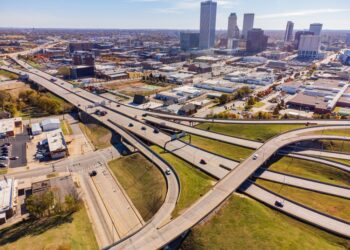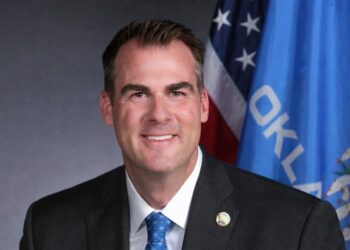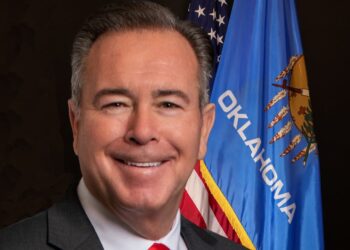OKLAHOMA CITY (OBV) – U.S. Sen. James Lankford said a “weird political mess” in Washington is standing in the way of immigration reform that would stop millions off illegal migrants from crossing the southern border.

Lankford spoke virtually to members of The State Chamber of Oklahoma’s 2300 Club about a wide range of timely topics.
State Chamber President & CEO Chad Warmington led the conversation, presenting Lankford questions regarding important issues, including immigration, the Soil Act and the upcoming election season.
Lankford, R-Oklahoma, played a key role in the creation of a bipartisan global security package that included an overhaul of the nation’s immigration law, designed to tighten border security.
The $118.28 billion package’s immigration provisions were negotiated by Lankford, Sen. Chris Murphy, D-Connecticut, and Sen. Kyrsten Sinema, I-Arizona. It included $20.23 billion to strengthen border security and stop the flow of fentanyl and other narcotics through the border into the United States.
The package gave the secretary of Homeland Security the power to close the border if more than 4,000 encounters with migrants occurred during a period of seven consecutive days. The border would automatically be forced to close down if encounters with migrants reached 5,000 over seven consecutive days. A combined total of 8,500 migrant encounters would cause the border to be shut down within one day.
The immigration overhaul also included raising the bar for migrants claiming asylum; clarification of the White House’s use of parole authority to grant temporary protections to migrants; and no longer allowing migrants to live in the U.S. while waiting for their case to be heard by an immigration judge.
However, the immigration package failed due to strong opposition from Republicans in the U.S. House of Representatives.
Lankford said the failure to pass bipartisan immigration reform is frustrating.
“I use the Jack Kemp term of ‘tall fences, wide gates’ to make sure that we keep the border secure, but that we also have a way to be able to get in the country legally that is consistent and is predictable,” Lankford said. “And what we don’t have right now is a predictable, legal immigration system where so many people cross the border illegally that literally the administration is taking some people off of the legal migration footprint, and they move them over just to handle all the issues on the southern border.”
It’s a problem that makes legal immigration pathways longer and harder, Lankford said.
“That’s the exact opposite of what we need to be able to do. So, we’re trying to be able to solve that. Obviously, we tried to get a bipartisan solution that we felt was a very solid step,” Lankford said. “It took the very first person that crossed illegally on the border and gave them a much faster decision process. So, we would get to true asylum seekers faster, and we would [more quickly] identify people that are just gaming the system, and we would be able to deport those people out. So, that becomes a deterrent.”
Arrests for illegal border crossings from Mexico hit a record high in December since monthly numbers have been released, according to an Associated Press report in January.
The Border Patrol made 249,785 arrests on the southern border in December – a 31 percent rise from 191,112 in November and 13 increase from December 2022’s 222,018 arrests, which was the previous record high.
President Joe Biden on June 4 issued an executive order concerning illegal immigration.
Biden issued the proclamation under Immigration and Nationality Act sections 212(f) and 215(a), suspending entry of noncitizens who cross the southern border into the United States unlawfully. The proclamation is accompanied by an interim final rule from the Departments of Justice and Homeland Security that restricts asylum for migrants entering the country illegally.
“The executive order that the president put out just reaches up to that 4,000-5000 marker and changes it there, but doesn’t change it at person one; so, that’s a problem,” Lankford said. “I think the president knows full well that the executive order he’s putting out is not going to stand up in the courts. A week or so from now when they start implementing this and they get past that seven-day time period that they have kicked in, the courts will immediately enjoin it, and I think the president will step up and say, ‘See, I told you, I can’t do anything without Congress.'”
Lankford described the handling of the southern border issue in the Beltway as a “weird political mess.”
“The president’s going to point to Congress and say, ‘You’ve got to do something.’ We’ve got members of my own party that are saying to the president, ‘We’re not willing to do anything until you take executive actions.’ And I was on the floor this week reminding the president that if he would impose the exact same executive authorities that President Trump used, or President Obama used – that’s the part everyone leaves out, a high year of illegal crossings under President Obama was half a million; it’s now 2.5 million,” Lankford said. “So, if President Biden would enforce the law the same way President Obama did, what’s happening on our southern border would be very different right now.”
Biden does possess executive authority to enact measurers that would reduce the number of illegal migrants from 2.5 million to a half a million. But congressional action is needed to address the other 500,000, according to Lankford.
“And that’s still a very big number. So, I don’t see Congress doing a thing over the next five months on this. I think everyone’s walked away,” Lankford said.
Too many legislators are playing to their base during election season instead of working to accomplish real immigration reform, Lankford said.
“In the Senate, we only have eight weeks that we’re still in session between now and the election, and most of the votes that are going to be queued up are going to be more messaging votes, both in the Republican House and in the Democratic Senate; that’ll be more messaging to their base constituencies,” Lankford said. “So, I don’t see anything serious moving in the Senate in the next eight weeks of session that we have between now and the election, especially not anything on the border.”

















